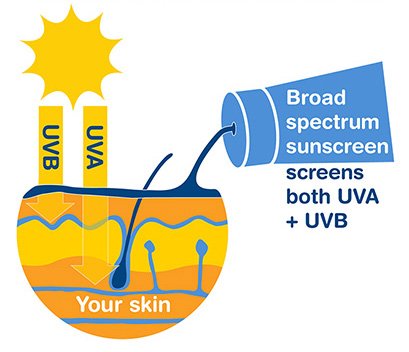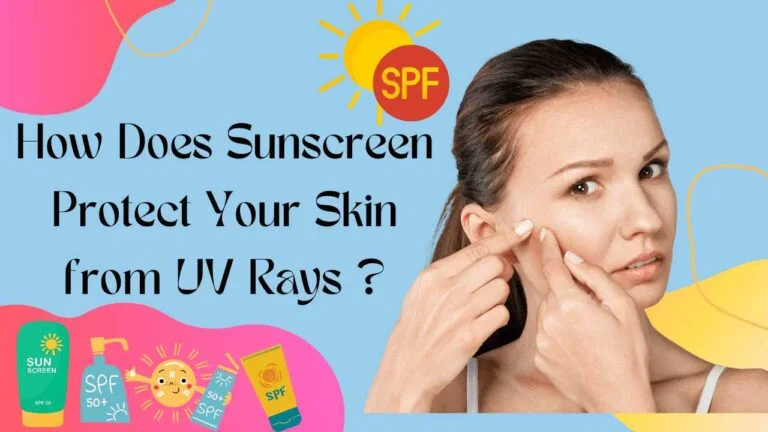Sunscreen is an essential component of everyday skin care that protects against the harmful effects of UV radiations. Individuals who use a broad-spectrum sunscreen with an appropriate SPF can lower their risk of sunburn, premature aging and skin cancer. Regular and adequate sunscreen application, together with additional protective measures such as wearing hats and sunglasses and finding shade, can dramatically improve skin health and longevity. Here’s given a detailed article on “how sunscreen work on your skin”.
Protection against UV rays:
The sun’s damaging ultraviolet (UV) radiation can have a major impact on skin health. These rays penetrate the skin’s layers, resulting in a variety of disorders.
UVA rays:
which are notorious for their aging effects, penetrate deeper into the skin, causing mostly by UVB rays, but they can contribute to the development of skin cancer. Overexposure to both type can cause accelerated aging, leaving the skin leathery and harsh.
To protect your skin, apply broad-spectrum sunscreen with an SPF of 30 or higher every day, even on cloudy days. Additional precautions include wearing protective clothes, seeking cover during peak sun hours, and having your skin examined on a regular basis.
Remember that the sun’s rays are extremely powerful, and continuous protection is critical for preserving healthy, youthful skin and lowering the risk of skin cancer.
How does Sunscreen work on your skin?
Sunscreen is an important tool for protecting the skin from the damaging effects of ultraviolet (UV) radiation from the sun. It works by mixing organic and inorganic molecules that absorb, reflect, or scatter UV light. Here’s a full description of how sunscreen works, including the science behind it:
Absorption (chemical sunscreen):
Chemical sunscreens contain chemicals that absorb UV radiation and convert them to heat, which is subsequently expelled from the skin.
Reflection (mineral sunscreen):
Mineral sunscreen like Zinc oxide and titanium dioxide lie on the skin’s surface, physically blocking and reflecting UV radiation.
Key Elements to consider while selecting a sunscreen:
Broad-spectrum protection: Provide coverage for both UVA and UVB radiation.
SPF(Sun Protection Factor): Measures the sunscreen’s ability to block UVB radiation. A higher SPF provides longer protection.
Broad-Spectrum Protection: It’s critical to select a sunscreen that provides broad-spectrum protection. This implies it protects your skin from UVA and UVB rays. UVA radiation reach the skin’s deeper layers, causing accelerated aging contributing to skin cancer. UVB rays are the primary cause of sunburns.
Organic Filters: These chemicals absorb UV rays and convert it to heat, which is then emitted from the skin. Avobenzone, octinoxate, and oxybenzone are among the most common organic filters. They are frequently effective against either UVA or UVB radiation, hence various compounds are used to give broad-spectrum protection.
Inorganic filters: These substances deflect and scatter ultraviolet energy away from the skin. Zinc oxide and titanium dioxide are two often used inorganic filters. They offer broad-spectrum UVA and UVB protection.
Important things to remember:
- SPF (Sun Protection Factor): This indicates the sunscreen’s capacity to protect against UVB radiation. Higher SPF does not necessarily imply longer protection.
- Broad-spectrum: Essential for protection against both UVA and UVB rays.
- Water resistance: Important for activities involving swimming or sweating.
- Reapplication: Important for keeping protection, especially after swimming or sweating.



